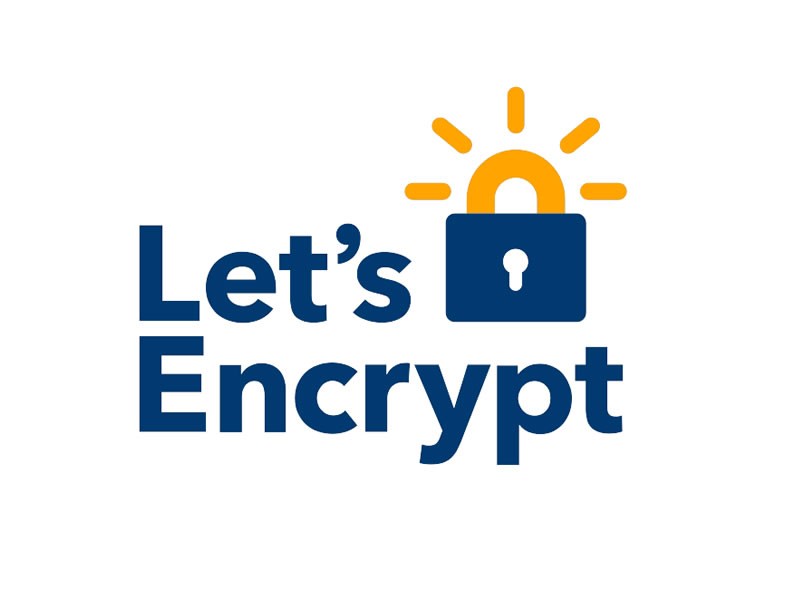Insight Blog
Agility’s perspectives on transforming the employee's experience throughout remote transformation using connected enterprise tools.
12 minutes reading time
(2305 words)
HTTPS Certificate For Intranet – All You Need To Know About SSL
Learn about the benefits of using an HTTPS certificate for your company's intranet. Improve security, increase trust, and enhance user experience with encrypted communication.
To protect the privacy, authenticity, and accessibility of company data, intranet, and internet security have become indispensable in today's businesses. Organizations must take preventative actions to safeguard their data and infrastructure against cyberattacks as their reliance on technology, and the internet continues to grow.
The use of secure protocols like HTTPS (Hypertext Transfer Protocol Secure) for transmitting sensitive information, access restrictions to prevent unwanted access, and regular data backups to mitigate the effects of data loss or theft are just some of the measures that may be taken to protect an organization's online presence.
In this article, we'll go over why intranet and internet security are crucial to businesses and the steps companies should take to keep their data safe.
HTTPS Certificate For Intranet – A Complete Guide
An intranet is a private network that is used by organizations for internal communications and information sharing. An intranet is used to share information between employees, departments, and other internal stakeholders within an organization.
An intranet can be used for a variety of purposes, including document management, project management, and communication between employees.
An HTTPS certificate for intranet is mandatory to protect information. Its primary function is to protect data transmitted over an unsecured network, like the public internet, between a website and its visitors.
On the other hand, the same level of security can be achieved for internal communications by using an HTTPS certificate in an intranet.
Organizations can utilize a private network called an intranet to facilitate internal communication and the sharing of data and materials. Because of the sensitive nature of the information and resources shared with employees via intranets, all communications within the network must be encrypted.
An HTTPS certificate can be utilized to prevent anyone from intercepting or altering the information being sent between the client and the server in an intranet.
What is an HTTPS intranet?
The HTTPS intranet protocol encrypts and secures data sent between a client and server within an organization's private network, known as an HTTPS intranet. Data transmission between the client and server in an HTTPS intranet is encrypted from beginning to end.
Companies often utilize an HTTPS intranet to distribute confidential materials to their staff. Organizations can safeguard the privacy and security of data sent over the network by switching to HTTPS encryption. This prevents third parties from gaining access to the data and altering it.
Organizations that need to comply with data protection legislation or industry standards that mandate the encrypted transmission of sensitive information can benefit from implementing an HTTPS intranet because of the added layer of security it provides for internal communications. In addition to facilitating quicker page loads and smaller data transfers, HTTPS can generally boost network speed.
To secure their internal network with HTTPS, businesses must obtain an HTTPS certificate from a reputable certificate authority and install it on their intranet server. After obtaining a certificate for encrypted communication, the server must be set up to use it. This way, companies may safeguard internal communications and prevent unauthorized access to critical data.
How can you install an HTTPS certificate for intranet?
Setting up an HTTPS certificate for intranet on a server that serves the intranet is simple. The first step is for the company to get a certificate issued by a reliable certification authority.
The cost of obtaining an HTTPS certificate can vary, although there are both free and premium options available.
Once the certificate has been obtained, it must be installed on the server that will host the intranet, and the server must be set up to use the certificate whenever an encrypted connection is required.
What are the advantages of using an HTTPS certificate for intranet?
Using an HTTPS certificate for intranet protects not only internal communications but also ensures conformity with applicable laws and standards. The General Data Protection Regulation (GDPR) and the Health Insurance Portability and Accountability Act (HIPAA) are two examples of data protection rules that mandate the encrypted transmission of patient health information and other personally identifiable information, respectively.
- Improved Security One of the biggest advantages of using an HTTPS certificate for an intranet is improved security. HTTPS uses encryption to protect sensitive information, such as login credentials and financial data, from being intercepted and read by unauthorized parties.
- Increased Trust By using an HTTPS certificate, a company can show its users that it takes their security and privacy seriously. This can increase the trust users have in the company, leading to greater engagement and better user experiences.
- Improved Search Engine Rankings Google has stated that it considers HTTPS a ranking factor in its search results. This means that a company that uses an HTTPS certificate for its intranet may see an improvement in its search engine rankings, leading to increased visibility and more traffic to its site.
- Better Compliance Many industries have regulations requiring companies to protect sensitive information, such as financial data. By using an HTTPS certificate for its intranet, a company can ensure that it is in compliance with these regulations, reducing the risk of penalties and legal action.
- Better User Experience HTTPS can improve the user experience by reducing the risk of man-in-the-middle attacks and ensuring that users' sensitive information is protected. This can lead to greater engagement and better user experiences, which can help increase a company's bottom line.
Using an HTTPS certificate on a private network also helps to boost the network's efficiency. The size of the transferred data is reduced through encryption, making encrypted communication more efficient. A speedier network and faster loading of pages are also possible benefits of this efficiency boost.
When it comes to protecting internal communications, nothing is more important than using an HTTPS certificate on an intranet. It safeguards data in transit, aids in meeting compliance standards, and boosts the efficiency of the network as a whole. If a company truly values the security and privacy of its internal communications, it should seriously consider obtaining and installing an HTTPS certificate on its intranet servers.
AgilityPortal is a secure cloud Intranet software is an internal social network that companies use for communication, task delegation, and analytics within their workforce. The company can keep it exclusive, making it accessible only to employees and staff. Small or medium businesses can benefit from this because they're useful to make employees feel connected. Get a Free demo today.
What are the disadvantages of using an HTTPS certificate for intranet?
- Increased Complexity - Using HTTPS certificates for intranet can increase the complexity of an intranet network. This is because HTTPS certificates require a secure connection to be established between the browser and the server, which can be difficult to set up and manage. This can lead to increased administrative overhead and may require specialized technical expertise to set up and maintain.
- Increased Costs - Using HTTPS certificates for intranet can also increase the costs associated with intranet communications. This is because HTTPS certificates must be purchased and renewed on an annual basis, and there may be additional costs associated with setting up and maintaining the secure connection.
- Reduced Performance - The use of HTTPS certificates for intranet can also reduce the performance of intranet communications. This is because the encryption process can add latency to the communication, which can slow down the overall performance of the intranet network.
- Reduced Compatibility - The use of HTTPS certificates for intranet can also reduce compatibility with other intranet technologies. This is because some intranet technologies may not support HTTPS certificates, and may not be able to communicate securely with systems that use HTTPS certificates.
- Increased Management Overhead - Finally, the use of HTTPS certificates for intranet can increase the management overhead associated with intranet communications. This is because HTTPS certificates must be managed and maintained, which can be time-consuming and resource-intensive.
Do You Need HTTPS For Your Intranet?
There are a number of criteria that determine whether or not a business needs HTTPS for intranet, including the sensitive nature of the data being communicated, the organization's own security requirements, and any applicable rules or standards.
Intranets that deal with sensitive data, such as personal, financial, or proprietary corporate information, should employ HTTPS. Using HTTPS, businesses may safeguard data from being snooped on or altered in transit by encrypting communications.
The General Data Security Regulation (GDPR) and the Payment Card Industry Data Security Standard (PCI DSS) are only two examples of data protection rules and industry standards that could necessitate the usage of HTTPS to encrypt sensitive information in transit.
Furthermore, utilizing HTTPS can still be helpful even if an intranet does not deal with sensitive information. By compressing data during transmission and speeding up page loads, HTTPS is one way to boost network performance. In addition to the apparent benefits to security and privacy, implementing HTTPS can also go a long way towards gaining the respect and trust of your staff.
Where To Find Intranet SSL Certificate For Free?
You can get an intranet SSL certificate free for your intranet. There are a few different ways to do so. You can find intranet SSL certificates free from these sources:
- Let's Encrypt is a nonprofit that helps anyone in need obtain a free SSL certificate. These certificates are often used for intranet SSL installations because they are trusted by all major browsers and need little technical know-how to set up.
- You can also use Self-Signed Certificates for your intranet. A self-signed certificate is a great alternative. Certificates that are signed by the same entity they authenticate are said to be "self-signed." Although self-signed certificates don't cost anything, most browsers will flag users with a security warning if they try to access the intranet using one.
- Community CA provides free SSL certificates to its users. Community CA issues free SSL certificates to businesses and individuals as an open-source project. In this sense, the certificates are suitable for use as intranet SSL certificates because most browsers trust them.
- Moreover, some businesses cover the cost of an SSL certificate for each employee. For example, Microsoft workers can get free SSL certificates through its Active Directory Certificate Services.
There are several places you may get an SSL certificate free for your intranet, such as Let's Encrypt, self-signed certificates, the Community CA, and even your own company's certificate authority. Make sure the certificate you choose is recognized by the vast majority of browsers before committing to it, and pick the one that best fits your company's security needs.
How To Get SSL Certificate For Intranet?
The data sent between a user's browser and a website is protected by using an SSL (Secure Sockets Layer) certificate. Passwords and bank information are only two examples of sensitive data that should be encrypted before being sent over the internet.
An SSL certificate is crucial for any website that receives or transmits data to the public, but it is also essential for internal websites. Information such as trade secrets, personal details, and financial data may be stored on a company's private intranet. Organizations can prevent third parties from eavesdropping on or altering sensitive data during transmission by installing an SSL certificate on their servers.
The following are the necessary procedures for an organization to obtain an SSL certificate for its intranet:
●The first step is to select a reliable certificate authority. Suppose you need an SSL certificate for your website and want to ensure it comes from a reliable source. In that case, you should look for a certificate issued by a reputable authority. Symantec, GlobalSign, and Comodo are all examples of well-respected certificate authorities.
●The next step is to get an SSL certificate. SSL certificates are available for purchase from reputable certificate authorities and can be used to secure data transmissions within an organization. An SSL certificate's price changes with its type and its validity duration. As mentioned above, you can also get the intranet SSL certificate free.
●Once an SSL certificate is purchased, it must be installed on a server. To encrypt communications between the server and the client, the certificate must be configured on the server.
●The final action is to set up HTTPS for the internal website. Businesses should set up HTTPS on their private intranets to protect sensitive data during transmission. To do this, you must update all links and references to the website so that they utilize the HTTPS protocol, and you must also redirect all traffic to the HTTPS version of the website.
Thus, an SSL certificate is a crucial tool for protecting intranets. Organizations can prevent third parties from eavesdropping on or altering sensitive data during transmission by installing an SSL certificate on their servers. In addition, an SSL certificate can assist businesses in meeting the requirements of data privacy laws and industry standards for transmitting sensitive data over the internet.
Wrapping up
You need to use HTTPS on your intranet to protect the privacy and security of information shared within your organization. The data exchanged between an intranet and its users is encrypted by an HTTPS certificate, making it impossible for prying eyes to read or modify any private information.
To secure their websites using HTTPS, businesses can pay for a certificate from a reputable certificate authority, use a free service like Let's Encrypt, or even generate their own certificate. It's crucial to pick a method that satisfies the organization's security requirements and verify that most browsers accept the certificate.
Categories
Blog
(2741)
Business Management
(337)
Employee Engagement
(214)
Digital Transformation
(185)
Growth
(124)
Intranets
(122)
Remote Work
(61)
Sales
(48)
Collaboration
(44)
Culture
(29)
Project management
(29)
Customer Experience
(26)
Knowledge Management
(22)
Leadership
(20)
Comparisons
(8)
News
(1)
Ready to learn more? 👍
One platform to optimize, manage and track all of your teams. Your new digital workplace is a click away. 🚀
Free for 14 days, no credit card required.


















